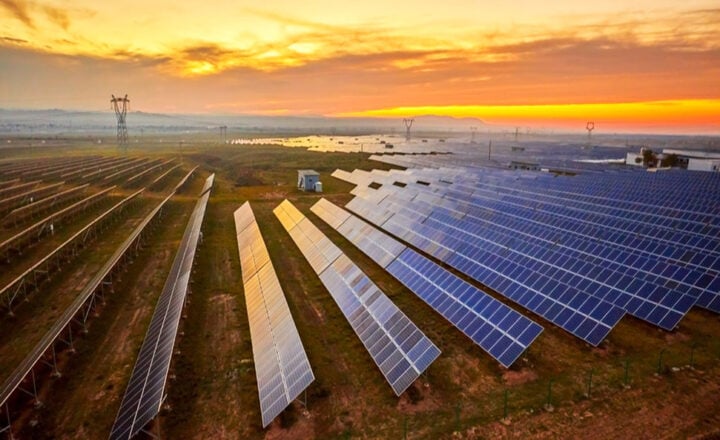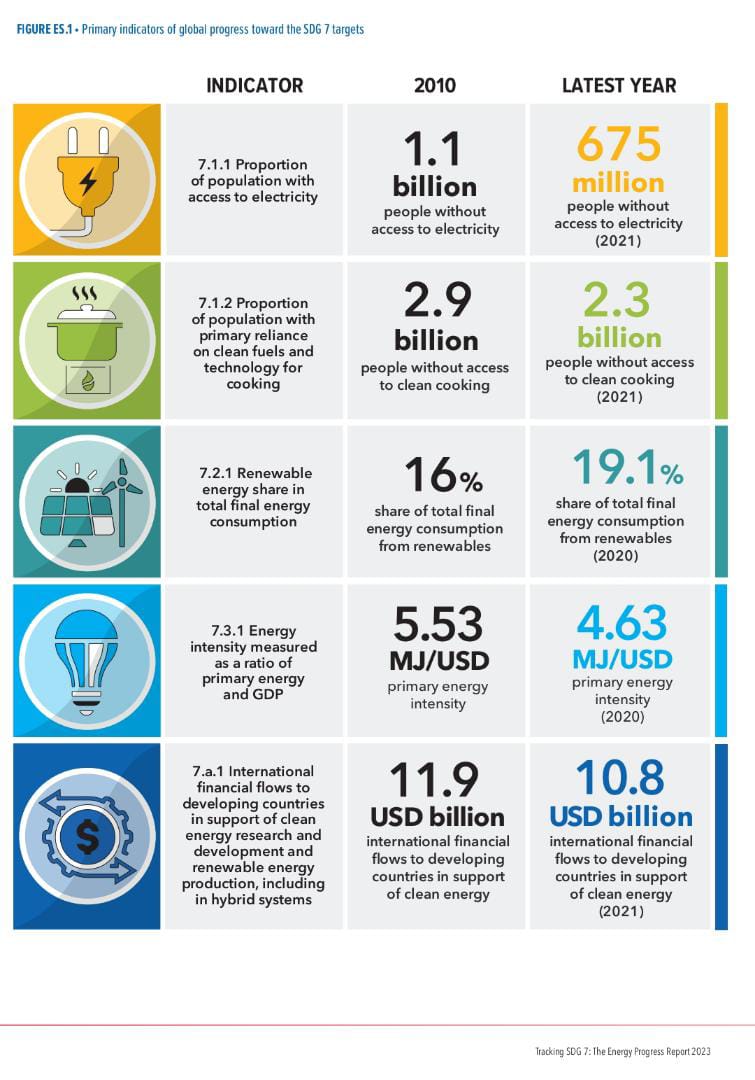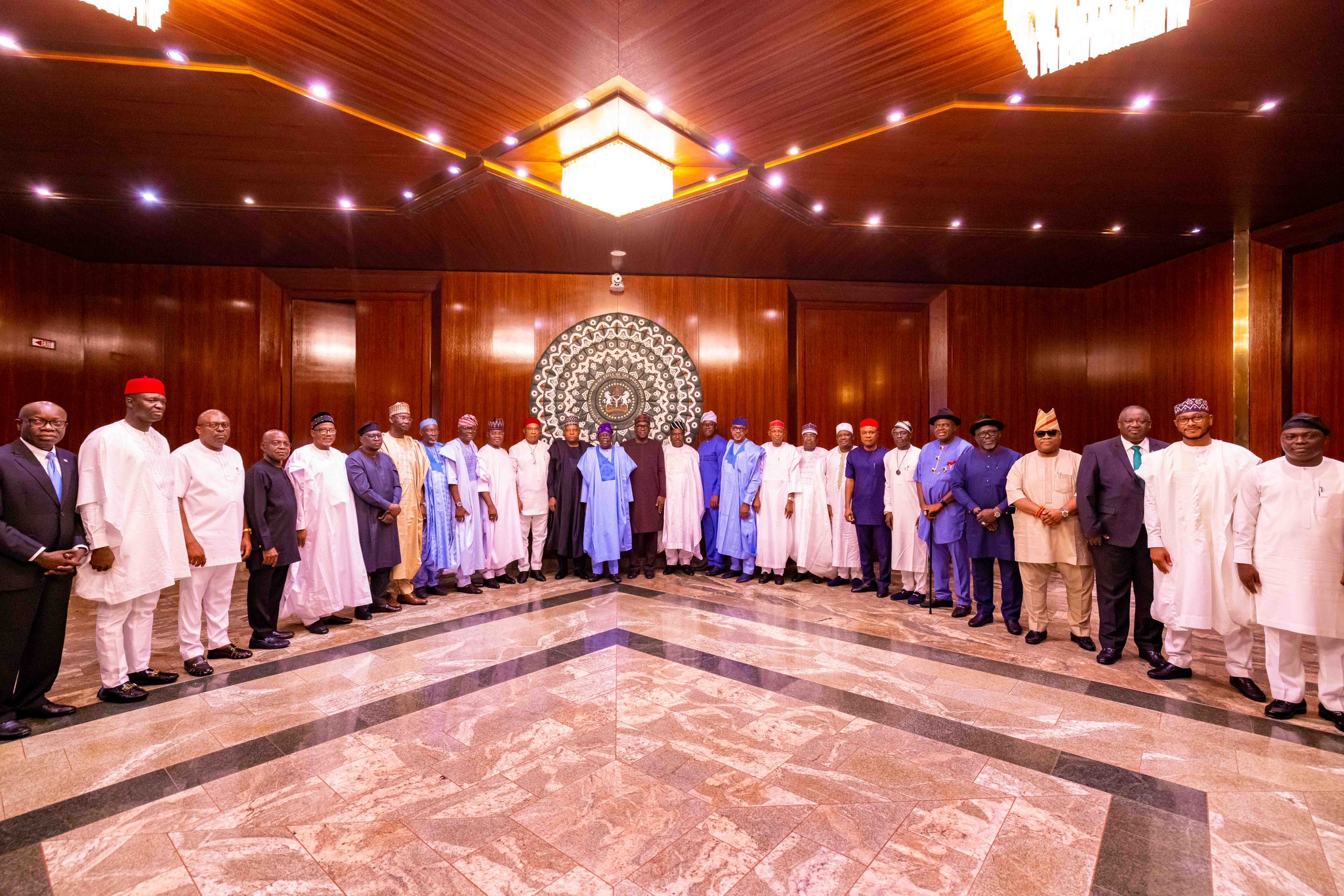The United Nations (UN) and international energy organisations have warned that current efforts are not enough to achieve sustainable development goal seven (SDG 7) by 2030.
This was made known in a report released on Tuesday by the International Energy Agency (IEA), the International Renewable Energy Agency (IRENA), the UN Statistics Division (UNSD), the World Bank, and the World Health Organisation (WHO).
The report says the progress of SDG 7 — which aims to ensure access to affordable, reliable, sustainable, and modern energy for all — has proved insufficient to reach the set targets, in time for the 2030 deadline.
The decline was attributed to global economic factors, including uncertain macroeconomic outlook, high levels of inflation, currency fluctuations, debt distress, COVID-19 pandemic, among others.
Advertisement
“Despite some progress across the indicators, the current pace is not adequate to achieve any of the 2030 targets,” the report reads.
“As in previous years, rates of progress vary significantly across regions, with some regions making substantial gains and some slowing their progress or even moving backwards.
“Among the major economic factors impeding the realization of SDG 7 globally are the uncertain macroeconomic outlook, high levels of inflation, currency fluctuations, debt distress in a growing number of countries, lack of financing, supply chain bottlenecks, tighter fiscal circumstances, and soaring prices for materials.
Advertisement
“The effects of the COVID-19 pandemic and the steady rise in energy prices since summer 2021 are expected to be a further drag on progress, particularly in the most vulnerable countries and those that were already lagging behind.”
660M PEOPLE TO BE WITHOUT ELECTRICITY BY 2030
The report said an estimated 1.9 billion people will be without clean cooking facilities, and 660 million without electricity access in 2030 if the status quo continues.
Advertisement
“Target 7.1 on ensuring universal access to affordable, reliable, and modern energy services is off track, with an estimated 675 million people still without access to electricity and 2.3 billion without access to clean cooking in 2021. Current trends suggest that the world’s shot on the target will fall very wide off the mark in 2030.
“Likewise, despite steady progress, the rate of improvement in energy efficiency is not on track to double by 2030, with the current trend of 1.8 percent falling short of the targeted increase of 2.6 percent each year between 2010-2030. To make up for the lack of progress, improvements would need to accelerate further from now to 2030.”
With 2023 being the mid-point of the implementation of the UN 2030 agenda for sustainable development, the gaps, the report said, will negatively impact the health of the most vulnerable populations and accelerate climate change.
MORE FINANCE FLOW NEEDED FOR CLEAN ENERGY
Advertisement
The report said funding for renewables and energy efficiency has contracted for the third year in a row — and to improve the outlook, there needs to be more investment in the sector.
“Although certain policy responses to the global energy crisis appear likely to improve the outlook for renewables and energy efficiency, other necessary policy actions, as well as financial flows, continue to lag,” the authors said.
Advertisement
“The decreasing trend in international public financial flows may delay achievement of SDG 7, especially for the least-developed countries (LDCs), landlocked developing countries, and small island developing states.”
Commenting on the report, Tedros Adhanom Ghebreyesus, head of the WHO, said “we must protect the next generation by acting now”.
Advertisement
“Investing in clean and renewable solutions to support universal energy access is how we can make real change,” he said.
“Clean cooking technologies in homes and reliable electricity in healthcare facilities, can play a crucial role in protecting the health of our most vulnerable populations.”
Advertisement
Stefan Schweinfest, from the UN statistics division, noted that “additional efforts and measures must urgently be put in place to ensure that the poorest and hardest-to-reach people are not left behind”.
Add a comment







